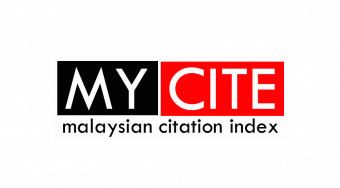Accounting for Trash Management at Universiti Malaysia Terengganu
DOI:
https://doi.org/10.46754/umtjur.v1i3.77Keywords:
Trash, environmental management accounting (EMA), policy, UMT, recycleAbstract
This paper provides preliminary evidence of the need for accounting for trash management in public organizations, in particular, Universiti Malaysia Terengganu (UMT). It has two objectives: to solicit opinions from students regarding their behaviors and perceptions towards recycling habits, and to provide data on the extent of accounting for trash management at UMT. A survey among 155 UMT students indicated that they recycled the trash and were aware of environmental issues caused by the waste. However, they were not informed about the benefits of environmental management accounting practice particularly regarding trash management. Interviews with UMT management also revealed that while UMT supported recycling activities by funding the projects and providing facilities, the data on the opportunity cost involved in the current practice was never integrated into UMT accounting system. As a result, the management had no idea of how much was lost (or gained) during the process. Based on the findings, this study calls for the implementation of accounting for trash management in a public university.
References
Abas, M. A., & Wee, S. T. (2014). Municipal Solid Waste Management in Malaysia: An Insight Towards Sustainability. SSRN Electronic Journal. doi:10.2139/ssrn.2714755
ACCA. (2017). Environmental management accounting. Retrieved from http://www.accaglobal.com/my/en/student/exam-support-resources/professional-exams-study-resources/p5/technical-articles/environmenta-management.html, 31 December 2017.
Ajzen, I. (1991). The theory of planned behavior. Organizational behavior and human decision processes, 50(2), 179-211.
Chang, H. (2013). Environmental management accounting in the Taiwanese higher education sector. International Journal of Sustainability in Higher Education, 14(2), 133-145. doi:10.1108/14676371311312851
Chartered Global Management Accountant. (2017) Environmental Management Accounting. Retrieved from https://www.cgma.org/resources/tools/cost-transformation-model/environmental-management-accounting.html, 31 December 2017.
Cole, E. J., & Fieselman, L. (2013). A community‐based social marketing campaign at Pacific University Oregon. International Journal of Sustainability in Higher Education, 14(2), 176-195. doi:10.1108/14676371311312888
Dempsey, M. E., & Palilonis, A. (2012). Reuse, recycle… reduce: a greener library with print management. Library Hi Tech, 30(3), 408-417
Ferreira, A., Moulang, C., & Hendro, B. (2010). Environmental management accounting and innovation: an exploratory analysis. Accounting, Auditing & Accountability Journal, 23(7), 920-948. doi:10.1108/09513571011080180
Fisher, R. M. (2003). Applying ISO 14001 as a business tool for campus sustainability. International Journal of Sustainability in Higher Education, 4(2), 138-150. doi:10.1108/14676370310467159
Jalaludin, D., Sulaiman, M., & Ahmad, N. N. (2011). Understanding environmental management accounting (EMA) adoption: a new institutional sociology perspective. Social Responsibility Journal, 7(4), 540-557. doi:10.1108/17471111111175128
Letmathe, P., & Doost, R. K. (2000). Environmental cost accounting and auditing. Managerial Auditing Journal, 15(8), 424-431. doi:10.1108/0268690001035470
Lima Ribeiro, V. P., Aibar Guzmán, C., da Silva Monteiro, S. M., & Aibar Guzmán, B. (2012). Determining factors of environmental management practices in Portuguese local entities. Management of Environmental Quality: An International Journal, 23(5), 486-502.
Manaf, L. A., Samah, M. A. A., & Zukki, N. I. M. (2009). Municipal solid waste management in Malaysia: Practices and challenges. Waste management, 29(11), 2902-2906.
Ministry of Housing and Local Government. (2015). Retrieved from http://www.kpkt.gov.my/separationatsource/en/, 02 January 2018.
Mistry, V., Sharma, U., & Low, M. (2014). Management accountants perception of their role in accounting for sustainable development. Pacific Accounting Review, 26(1/2), 112-133. doi:10.1108/par-06-2013-0052
Qian, W., Burritt, R., & Chen, J. (2015). The potential for environmental management accounting development in China. Journal of Accounting & Organizational Change, 11(3), 406-428. doi:10.1108/jaoc-11-2013-0092
Qian, W., Burritt, R., & Monroe, G. (2011). Environmental management accounting in local government. Accounting, Auditing & Accountability Journal, 24(1), 93-128. doi:10.1108/09513571111098072
Ramayah, T., & Rahbar, E. (2013). Greening the environment through recycling: an empirical study. Management of Environmental Quality: An International Journal, 24(6), 782-801. doi:10.1108/meq-07-2012-0054
Samsudina, M. D. M., & Dona, M. M. (2013). Municipal solid waste management in Malaysia: Current practices, challenges and prospect. Hospital, 17, 0-9.
Skanavis, C., & Sarri, E. (2002). The role of environmental education as a tool for environmental management in Cyprus. Environmental Management and Health, 13(5), 529-544. doi:10.1108/09566160210441816
Tangwanichagapong, S., Nitivattananon, V., Mohanty, B., & Visvanathan, C. (2017). Greening of a campus through waste management initiatives. International Journal of Sustainability in Higher Education, 18(2), 203-217. doi:10.1108/ijshe-10-2015-0175
Wan, C., Cheung, R., & Qiping Shen, G. (2012). Recycling attitude and behaviour in university campus: a case study in Hong Kong. Facilities, 30(13/14), 630-646.




